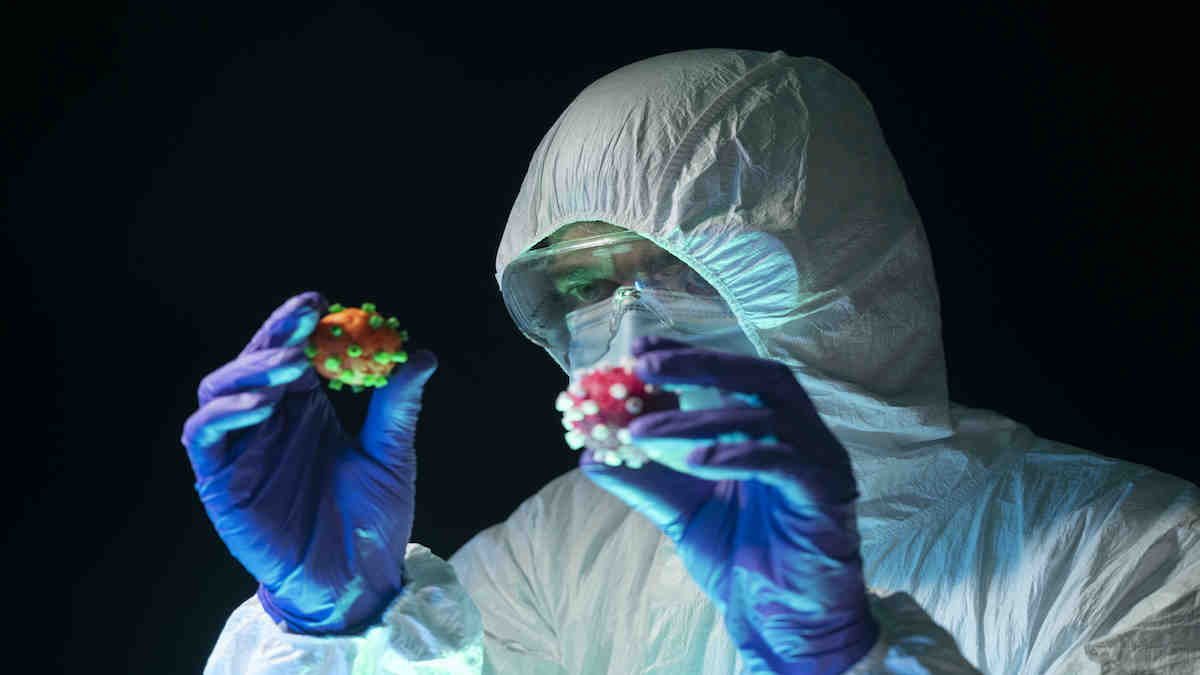Merck’s COVID-19 breakthrough in the US gives boost to ASX- listed PharmAust

The recent breakthrough in the US on antiviral molnupiravir has shone the spotlight on PharmAust’s own testing of lead drug, monepantel. Image: Getty
The recent breakthrough in the US on antiviral molnupiravir has shone the spotlight on PharmAust’s own testing of lead drug, monepantel.
In a major development last week, US-based Merck and partner Ridgeback Biotherapeutics have called for an early end to their testing of molnupiravir – a potential drug studied as a COVID-19 antiviral.
The testing was halted in order to seek regulatory emergency-use authorisation from the US FDA.
According to Merck’s press release, studies showed that only 7.3% of patients who received molnupiravir were hospitalised through Day 29, compared with 14.1% of placebo-treated patients who were hospitalised or died.
To date, Gilead Sciences’ remdesivir is the only antiviral drug approved by the FDA for the treatment of COVID-19 infections.
Similar to remdesivir, molnupiravir is an experimental antiviral drug that aims to treat a range of respiratory viruses, including the virus that causes COVID or SARS-CoV-2.
Molnupiravir works by disrupting the replication of the virus by mimicking the production of cytidine and uridine in our body’s RNA (ribonucleic acid).
It effectively introduces nonsense molecules into the replicating RNA strands, which causes viral replication to stop.
The Australian government has pre-purchased 300,000 courses of molnupiravir, but has yet to gain approval from the Therapeutic Goods Administration (TGA).
ASX-listed PharmAust (ASX:PAA) is also developing an alternative antiviral drug called monepantel, (MPL) an orally administered antiviral tablet that could treat a range of viral diseases including COVID-19.
Stockhead spoke directly with Dr Richard Mollard, PharmAust’s chief scientific officer, who explained that MPL is a new paradigm and hypothesis that still needs to be demonstrated.
He said that it’s difficult to compare MPL with remdesivir, because remdesivir has been in the market for a long time.
However, he suggests that MPL might work well together with remdesivir as a cocktail treatment.
“It’s more correct to think of them (remdesivir and MPL) working together, perhaps to give maximal efficacy to any antiviral programs,” Dr Mollard told Stockhead.
“So if you think of HIV for example, there are three or four antivirals in the cocktail, that’s why they took about 20 years to develop it.”
“Remdesivir and molnupiravir work on one part of the life cycle, and we’re working on another life cycle with MPL.”
“So we think that MPL may hopefully be one component of a cocktail later on down the track, which might include remdesivir or molnupiravir, for example” he said.
PharmAust’s lead drug Monepantel
The company has previously demonstrated that its lead drug MPL and monepantel sulfone (MPLS) provided protection against cell death in non-human primate systems.
In July, lab results demonstrated that MPS and MPLS showed an approximate 50% decrease of SARS-CoV2 virus RNA release, while another study that investigated MPLS only showed that SARS-CoV2 RNA release decreased by 60-70% .
Although these may appear moderate results, previous studies from labs that used extended culture TCID50 (Tissue Culture Infective Dose) to measure secondary infection showed significant suppression of released RNA maturation following MPL or MPLS treatment, of 99% and 75% respectively.
“The way we understand MPL is it activates a process called autophagy,” Dr Mollard explained.
“Inside the cells, you’re having organelles being made, which dispose of unwanted proteins. What a virus typically does is, it wants to make those organelles differently to avoid cellular surveillance.”
The virus hides in these little organelles, similar to what MPL produces to get rid of proteins, he said.
“So once the virus is inside these organelles, MPL is stopping it from coming out of the cell and infecting other cells. We suggest that we basically disrupt maturation of the virus RNA,” he said.
“This will reduce the capacity of the virus to infect other cells within the body of the patient, and also reduce the capacity to transmit the virus to other people.”
Unlike remdesivir which is administered intravenously, MPL can be administered orally.
Dr Mollard says the company spent a lot of time making the drug into an edible tablet, which means it could be easily taken home or into a quarantine situation where people might start to get sick.
Apart from antivirals, MPL is also currently being trialled in other treatments, including pet dogs with B-cell lymphoma.
Phase IIa and Phase IIb studies in canines have shown a compelling outcome, which included an objective regression in one of the eight dogs treated, with some tumours resolving completely when administered with MPL.
To move this forward, PharmAust is currently preparing a Phase 3 study for canines, and Dr Mollard believes this will be the closest drug the company has in terms of commercialisation.
“We’ve come a long way in the canine testing, and we’re confident to start Phase 3 trial with aims to commercialise in the near future.”
This article was developed in collaboration with PharmAust, a Stockhead advertiser at the time of publishing.
This article does not constitute financial product advice. You should consider obtaining independent advice before making any financial decisions.
Related Topics
UNLOCK INSIGHTS
Discover the untold stories of emerging ASX stocks.
Daily news and expert analysis, it's free to subscribe.
By proceeding, you confirm you understand that we handle personal information in accordance with our Privacy Policy.








